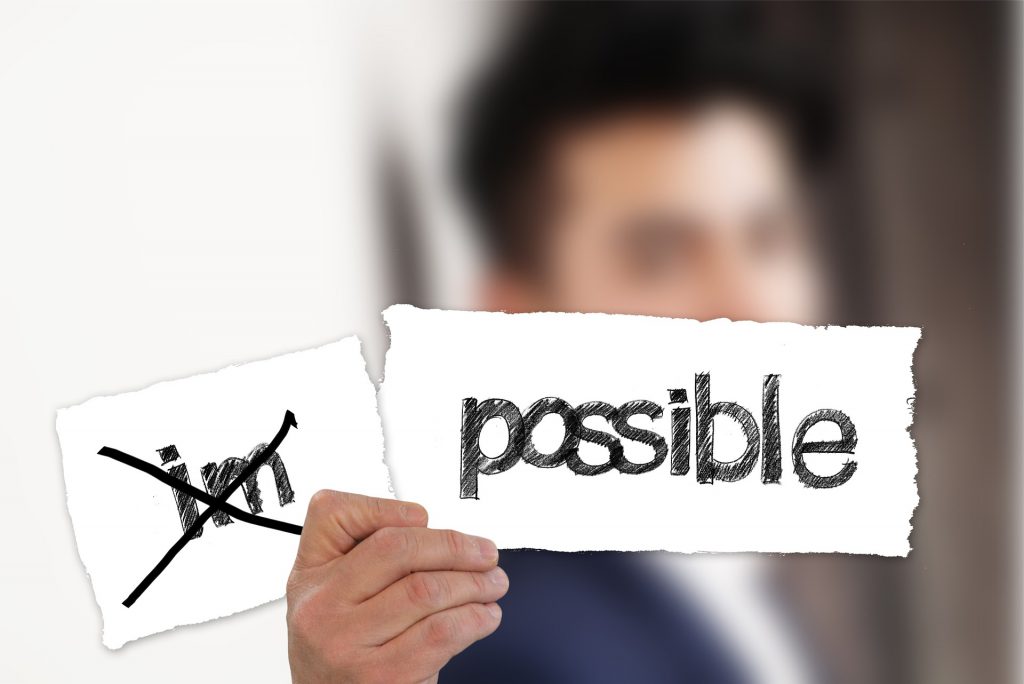
How will this end?
How will this impact economy?
How many will die?
Is there more to it than that?
Government should have …
You can’t trust anyone anymore!
This is a disaster!
I don’t even want to know what we don’t know!
Do these sentences sound familiar to you?
I have the feeling that I have have heard them in the past days and weeks particularly often. Perhaps you said similar things or thoughts like this ran through your head.
What are they doing to you?
How do you feel when you say them out loud or hear them?
What state do they put you in?
Do they strengthen or weaken you?
Sentences like this are usually a result of a “victim mindset” – we see ourselves at the mercy of others, powerless, helpless. With what is currently happening in the world, this perspective may be closer to your mind than usual.
But even in the current situation, besides the aspects we cannot influence, there are at least as many that we can influence.
The question is: were do you direct your energy and focus to?
Who has control over your wellbeing, your attitude, your mindset?
You yourself or external circumstances?
Do you let yourself be drawn into the vicious circle of “isn’t it awful”?
Or do you look at what you can do
– or as Theodore Roosevelt put it:
Do what you can – with what you have – where you are.
The American management consultant Steven Covey already mentioned the importance of focusing on the things we can influence in his bestseller “7 Habits of Highly Effective People”, published in 2004. In this book, he speaks of a pro-active mindset as opposed to a reactive mindset. People with a pro-active mindset focus on things they can control, people with a reactive mindset focus on things they cannot control.
People with a reactive mindset:
- have a problem focus
- waste their time in discussions and anger about circumstances over which they have no control
- lose their energy in activities outside their circle of influence
- focus on the weaknesses of others
- search for people to blame
- neglect the areas and activities over which they have influence
- therefore increasingly feel themselves to be victims
- are therefore filled with negative energy
- thereby weaken themselves and
- thus narrow their cicle of influence more and more
In the end they create a mental and emotional vicious circle. In the worst case, the last thing they cling to is the search for confirmation that they are right.
People with a proactive mindset, on the other hand:
- are solution-oriented
- see opportunities and possibilities
- invest their time in brainstorming and change/adaptation
- focus their energy on activities that are within their circle of influence and make a difference
- increase their self-efficacy
- are therefore filled with positive energy and motivation
- thus strengthen themselves and
- extend their circle of influence and possiblities to act
This also creates a circle- but a “motivation circle”.
Yes, there will always be things that we cannot influence – and at the moment there seem to be a lot more of them. But the principle remains the same. In order to be able to act effectively and remain in a healthy mental and emotional balance, we need:
- acceptance of the fact that there are things beyond our control
- a clear, rational view and focus on what is in our control
- the motivation to do what is in our power
If we work on ourselves and take and maintain a pro-active mindset rather than worrying about the circumstances, we are much more likely to come up with ideas that will ultimately change the circumstances.
Here is a small example from my own life.
In 2011 I read a book about animal farming and meat consumption. What I read was very upsetting and yes, I was outraged and horrified how all this can be. So my first reaction was an absolutely reactive one – coupled with the thought “I am not able to change this, I am only one single person”. I felt helpless and guilty.
If I would have remained in this mindset, I would have…
- told everyone – whether they wanted to or not – how bad it all is
- condemned anyone who eats meat
- started to teach and try to convert everyone who eats meat
- certainly caused a hostile attitude among the people I would have tried to influence
- experienced little openness for my views
- therefore considered people to be ignorant and bad
- negatively influenced the image of people who eat vegetarian food
Luckily, instead, I simply made a decision for myself and started to follow a strictly meatless diet and
- discovered new foods
- learned a lot about nutrition
- brought such tasty vegetarian alternatives to the barbecues that even those eating meat wanted to try them
- often got envious looks at my vegetarian alternative in the restaurant and
- this way motivated others to “try it out” too
- informed anyone who asked me about the reasons for my decision
- checked out possibilities to actively support respective organizations
So, whatever is important to you – focus on what you can influence, act upon it and deliver this way positive energy to yourself and others! This is what we cannot have enough of in this world!
Stay positive and pro-active!
Your Birgit
